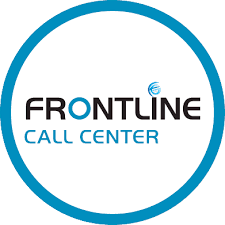The Power of an Advisor and Sales Tax Software
Tax planning for SaaS companies is extremely complicated. Because SaaS products and services could conceivably be used in every U.S. state, companies need a strong understanding of state and local tax (SALT) obligations and how they vary from state to state.
Fortunately, tools exist to help companies achieve and maintain compliance with the full scope of tax regulations. One such tool is a sales tax software solution that uses automation to pull information from a company’s enterprise resource planning (ERP) system to calculate its taxes and maintain compliance with various tax regulations. Components of this solution could include a tax decision engine, an exemption certificate management module, and a tax return compliance module.
However, a sales tax software solution isn’t sophisticated enough to manage all of a company’s sales tax obligations, including compliance. Tax requirements and situations are nuanced, and software alone may not be sufficient. This is when the judgment of a seasoned sales tax professional goes from nice-to-have to a critical value add.
Often, the question is whether a company should invest time and money in implementing a sales tax software solution or just work with a tax advisor. The answer is BOTH. Companies should supplement the automation of a sales tax software solution with the professional judgment of a tax advisor to ensure accurate compliance and minimize the possibility of costly errors. The key is knowing when to bring a tax advisor into play.
Here are four situations in which companies should consult with a tax advisor:
When using a sales tax software solution, a company may be advised to file zero sales tax returns everywhere it creates nexus, which can incur high costs. A tax advisor can analyze and discuss the advantages and disadvantages of filing returns in various states and identify associated risks so a company can make informed decisions on how to file. That way, a company can minimize risk while avoiding spending hundreds or even thousands of dollars on unnecessary filings.
Keep In Mind
Even if a SaaS company only sells products or services to an exempt entity in a particular state, a tax obligation is still created. This is one example in which using a CertCapture solution, in addition to implementing clear onboarding policies, may be the best strategy for ensuring compliance.
2. Taxability and Exemptions
A tax software solution with a tax decision engine can make it easier for a company to determine its taxability and flag any available exemptions. It is helpful to have a tax advisor involved in this process to ensure proper implementation. For a company whose solution also includes an exemption certificate management module, a tax advisor could assist in assessing the validity of certificates, performing customer outreach, and answering customer inquiries.
3. Voluntary Disclosure Agreements
When a company decides to enter a voluntary disclosure agreement, it should take a total tax approach to fully understand whether its historical activities might have created income and/or employment tax exposure. Failure to do so can lead to costly penalties. Tax advisors can provide a holistic view of a company’s tax footprint to identify triggers that could affect income tax.
4. Notice Resolution
Sometimes, the path to notice resolution is simple and direct. However, in many cases, correctly addressing a tax notice requires a combination of analytical skills, knowledge of tax laws, and an understanding of the company’s various revenue streams, purchases, and compliance history. In these situations, a tax advisor can sift through the complexities to find the best path to resolution. A tax advisor can also communicate that path internally and help guide a company through the process of implementing the recommended approach.
The Bottom Line
For SaaS companies, automation can be invaluable in navigating the complexities of SALT obligations. However, these companies shouldn’t overlook the power of working with an experienced tax advisor for guidance beyond what automation can provide. The key to tax success for SaaS companies is striking the right balance between sound human judgment and the power of automation.
Written by Hank Galligan, Angela Acosta and Matthew Dyment. Copyright © 2023 BDO USA, LLP. All rights reserved. www.bdo.com



